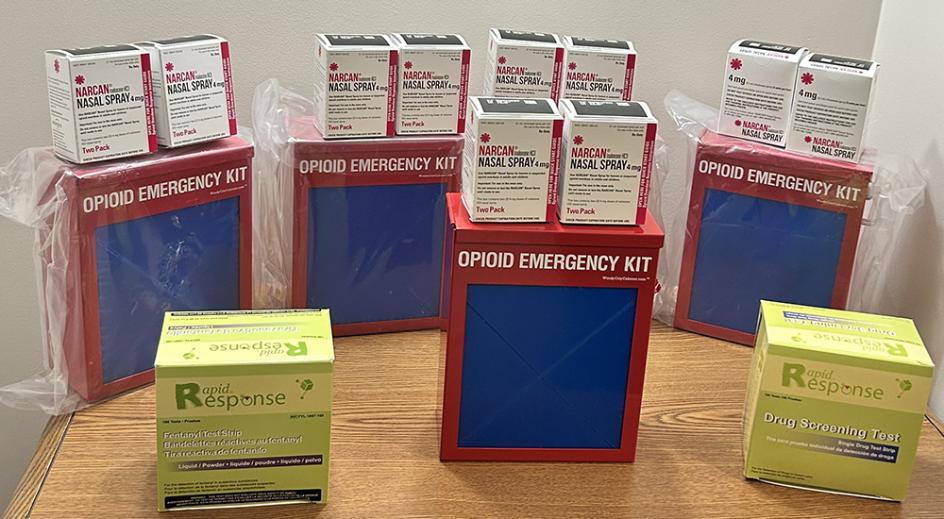
Rarely can you check the news these days and not find a report of opioid addiction or death. Overdoses involving opioids such as fentanyl killed 69,710 people in 2020 – up nearly 20,000 from just a year earlier, according to provisional data released by the National Center for Health Statistics.
Additional research indicates that the use of opioids by college students has risen dramatically in the past decade, resulting in increasing numbers of accidental overdoses. While health and security professionals say they are unaware of a serious issue at Heidelberg, they are nonetheless taking proactive steps should an emergency occur on campus.
“What I am aware of is that the college student population is a very high-risk group,” said Janelle Baldosser, CNP, director of the Stoner Health & Counseling Center. “They could take a counterfeit drug one time and experience an overdose resulting in death.”
Naloxone ER kits coming to Heidelberg
To make sure members of the Heidelberg community – and especially students – are prepared, the university is getting ready to install five naloxone emergency cabinets across campus. The cabinets will contain emergency supplies, including naloxone nasal spray for use in responding to a suspected opioid overdose.
More than 80% of overdoses were the result of fentanyl use, Janelle explained. Naloxone nasal spray has been proven to be a safe way to reverse the effects of an overdose from opioid drugs such as fentanyl or heroin by blocking the effects of the drug on the brain and quickly restoring breathing.
Essentially, naloxone saves lives. It’s been safely used by emergency medical professionals for more than 40 years, and now, it’s going to be readily available on Heidelberg’s campus.
In 2020, Gov. Mike DeWine signed House Bill 341, which expanded access to naloxone and provided different means of distribution, including NaloxBoxes and emergency access cabinets.
“Access to life-saving naloxone is one of the most effective ways to combat opioid overdoses, so it remains a priority for the state to drive access to this life-saving medication to all communities and particularly to high-risk populations,” the state said.
Janelle and her team took advantage of the opportunity to acquire naloxone emergency cabinets when offered at no charge by several state organizations, including RecoveryOhio, the Ohio Department of Higher Education, the Ohio Department of Health and the Ohio Department of Mental Health and Addiction Services.
Location: Residence halls
The health center team has worked with Jake McGraw and the Campus Safety and Security team to determine the most strategic locations on campus for the five NaloxBoxes that Heidelberg has received. Installation will soon take place in King, Krieg, Talmage, Brown/France and Miller/Williard residence halls. The naloxone emergency cabinets will be located in close proximity to the AED (automated external defibrillator) units in those halls.
Like the AEDs, the NaloxBoxes include specific and easy-to-follow instructions, which include evaluating for signs of opioid overdose, calling 911, administering naloxone nasal spray, support the person’s breathing, and monitoring their response.
“They’re very easy to use,” Janelle said.
Upcoming training
Janelle and her team have finalized the mandatory process and policy that outlines how often each box is reviewed and restocked. Tthey will conduct two informational education sessions to demonstrate how to use the naloxone emergency cabinets.
The training sessions will be held from 11 a.m.-noon on Friday, Dec. 8, and Tuesday, Dec. 12, at The HeidelBean. The campus community is encouraged to attend one of the sessions.
Stop by during the hour, chat with Janelle and her staff and learn more about the new naloxone emergency cabinets in an informal conversation.